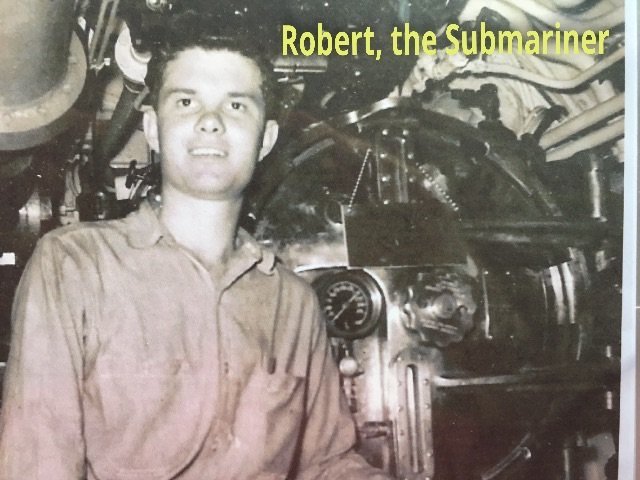Robert Hendrix Thornhill

Robert spent five years as a submariner aboard the USS Caiman. He was very proud of his service on the submarine.
After an honorable discharge and not knowing what was next in life, he discovered Tokyo Jochi Daigaku, a Jesuit University, was approved for GI Bill students. He enrolled. Robert was granted a scholarship from the Japanese Ministry of Education. One of the first two granted Americans since 1936. Robert received the first ever to an undergraduate student. During his time as a student, Robert met Atsuko, his future wife.
In September of 1955 when he was again trying to decide ‘what next?’, he became a Department of the Army civilian. Altogether he worked in Tokyo, Korea, Vietnam, Laos, Thailand, Germany, the Middle East, all the NATO countries
Robert Hendrix Thornhill was born on June 7th, 1931 in Thackerville, Oklahoma. He spent most of his youth in Marietta, Oklahoma. At the age of seventeen with his grandparents’ permission, he joined the Navy.
Robert spent five years as a submariner aboard the USS Caiman. He was very proud of his service on the submarine.
After an honorable discharge and not knowing what was next in life, he discovered Tokyo Jochi Daigaku, a Jesuit University, was approved for GI Bill students. He enrolled. Robert was granted a scholarship from the Japanese Ministry of Education. One of the first two granted to Americans since 1936. Robert received the first ever to an undergraduate student. During his time as a student, Robert met Atsuko, his future wife.
In September of 1955 when he was again trying to decide ‘what next?’, he became a Department of the Army civilian. Altogether he worked in Tokyo, Korea, Vietnam, Laos, Thailand, Germany, the Middle East, all the NATO countries of Europe plus Hawaii, Oakland, and the Pentagon. Atsuko, and his two daughters, Marilyn and Mary enjoyed travelling and experiencing the world along with him.
After 40 years, he retired. Retirement wasn’t kind to someone like Robert who was a workaholic. He decided to travel. He went to China and was invited many times to stay and teach. He declined but he had a thought. Why not return to China with the Peace Corps? As happens so often with the government he was sent to Latvia instead. He said his time in Latvia was very rewarding. He taught English at the Latvian Maritime Academy.
When he returned to the US, he remembered one of his professors in Japan frequently spoke of the beauty of the Northwest. Oregon in particular. He decided to check it out. He discovered how true it was and made Beaverton, Oregon his home. He kept busy in Beaverton. He collected hundreds of books for locals schools so every student had books to take home with them for the summers. He would put on his VFW cap and volunteer at various Veterans’ functions. He wrote to congressmen on behalf of Veterans’ families so their spouses could get a college edcation. He spent hours on the computer until a law was passed that allowed surviving dependents the benefits of the GI Bill. The provision on the GI Bill was called Spouses of Heroes Education Act. He was always thinking of ways to help Veterans. He even volunteered at some of the mock emergency preparedness drills. He carried the Latvian flag for the Peace Corps group in the Rose Parade a few times. His favorite activity in retirement was visiting the Elsie Stuhr Center. He met wonderful people in his exercise classes, writing classes and brain classes. He enjoyed their monthly birthday lunches.
Robert was 91 years old. He is survived by his wife, his two daughters, six grandchildren and 9 great grandchildren.
